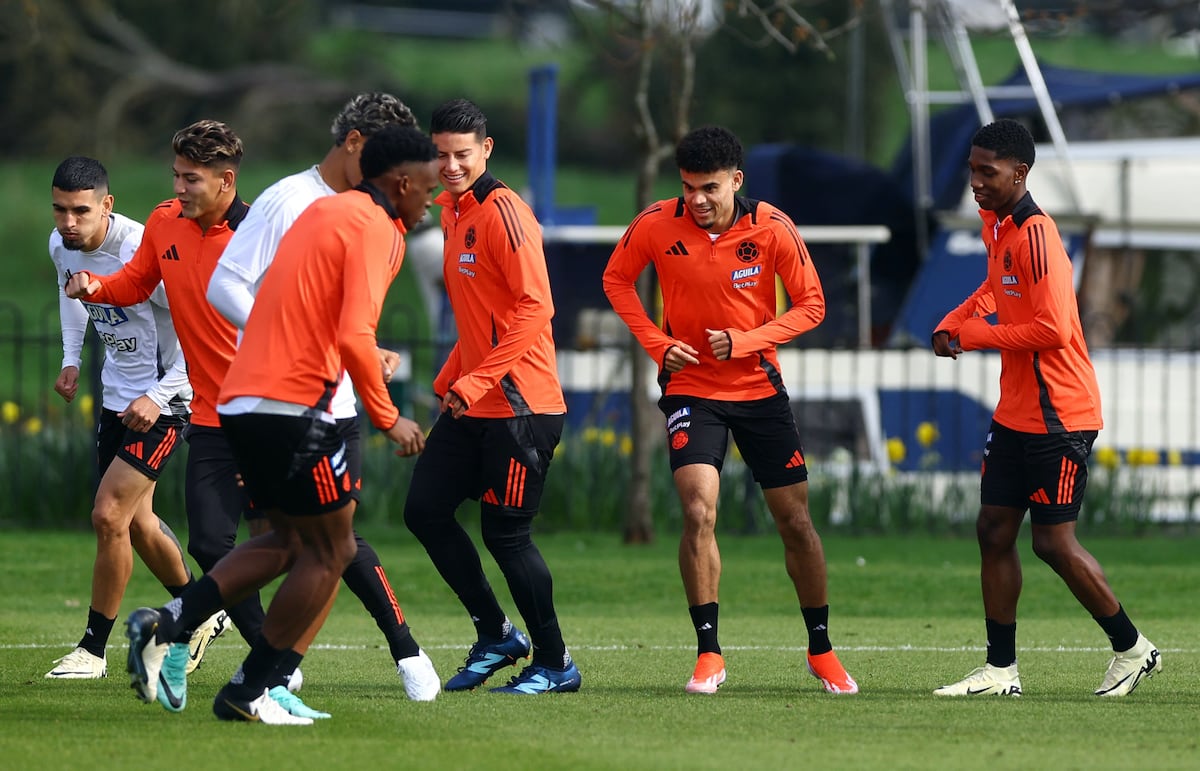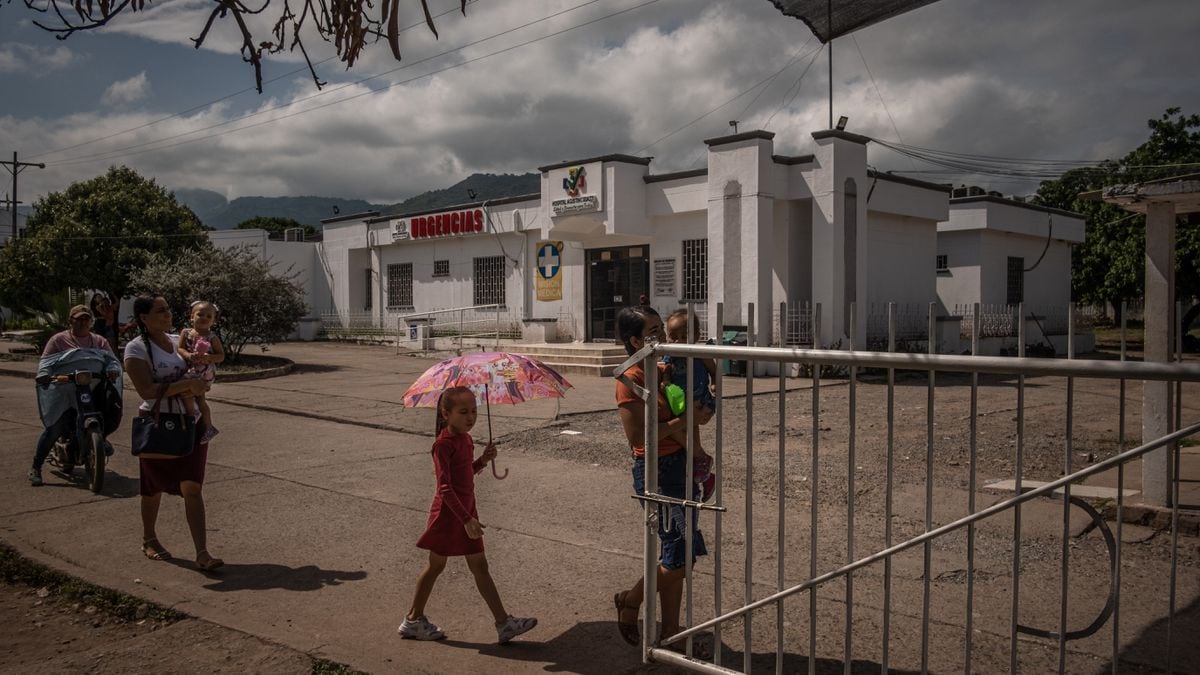Colombia experiences a series of attacks prior to presidential elections 3:22
(CNN) --
This year began with violence on the Colombia-Venezuela border, where dissident militant factions have been vying for territorial control of the lucrative drug routes that connect the South American country with the United States and Europe.
At least 23 people were killed in violent clashes earlier in the year, followed by a car bombing and the killing of a local community leader and his wife.
The renewed violence comes more than five years after the Colombian government signed a peace agreement with the Revolutionary Armed Forces of Colombia (FARC), ending a 52-year armed conflict that has killed nearly 220,000 people and displaced up to 5 million people.
Colombian President Iván Duque has promised to end the violence during his presidency.
But it is a common scenario in rural areas, where peace was supposed to bring development and new opportunities, raising concerns that the country's most violent days are not over.
This is what you need to know about the latent conflict on the Colombian border with Venezuela.
Who are fighting?
Colombian authorities have accused some groups of sparking the recent clashes in Arauca department: the National Liberation Army, the country's largest remaining leftist guerrilla group, known by its acronym ELN, and dissident factions of the FARC. .
advertising
The FARC disarmed and disbanded after the November 2016 peace deal. A political party was formed using the same acronym but was renamed "Comunes" last year.
Colombian National Police patrol the streets of Savarena, Arauca on January 23.
The FARC dissident groups are made up of rebel fighters who refused to enter the peace process.
Among them are other dissident groups, which also disagree with each other.
Although the presence of these groups in the region has been reported since the 1980s, the competition between the ELN and the FARC in Arauca intensified between 2006 and 2010.
President Duque, Defense Minister Diego Molano, and several generals who have visited Arauca in recent weeks blame competition between all these groups, which they say, are backed by support from Venezuela, for the violence.
The Colombian government alleges that Caracas has allowed these criminal groups to take refuge in its territory, allowing them to escape prosecution by Colombian forces, something that Caracas has always denied.
The groups fight over drug smuggling routes from Colombia to Venezuela, a gateway to lucrative markets in North America and Europe, according to the Colombian government.
Because right now?
The fighting on the border stopped in 2010 after the warring factions signed a truce that they called "no more confrontation between revolutionaries".
By that time, at least 868 civilians had been killed and 58,000 people had been displaced, according to a Human Rights Watch (HRW) report.
However, tensions continued to grow until this year's violence erupted.
It is still unclear what triggered the January 2 clash, but all the groups have accused each other of withdrawing from the truce in a bid to gain control of the region.
Colombian military guards patrol the Arauca river in Arauca, Colombia, on January 22.
What is the role of Venezuela?
Colombia's government has long accused Venezuela's embattled President Nicolás Maduro of harboring FARC dissidents and ELN fighters to destabilize and exacerbate Colombia's internal conflict.
Maduro has repeatedly denied those accusations.
However, it was not until last spring that the Maduro government launched a military campaign to quell the violence on its southern border, admitting for the first time that Colombian criminal groups were operating in the area.
Venezuela deployed special forces and intelligence units in March 2021.
At least four Venezuelan soldiers were killed in clashes with Colombian criminal groups in Venezuela's Apure state during that campaign, according to the Venezuelan Defense Ministry, as a result of which thousands of people sought refuge in Colombia.
The situation leaves Colombia and Venezuela with the same problem: the presence of highly qualified criminal groups that control parts of their border territories.
But since the two neighbors have ceased any diplomatic communication since 2019, since Colombia -- like the United States and most countries on the continent -- does not recognize the Maduro government, they cannot develop a common strategy around their porous border of 2,219 kilometers.
Who is at risk?
At the heart of the suffering are the people, mostly from indigenous groups, of Arauca, one of the poorest areas of Colombia.
People living on both sides of the border have been affected, with Colombia's ombudsman tweeting last week that a growing number of Venezuelan citizens, particularly from indigenous groups in Apure state, are seeking refuge from the fighting. .
Venezuelans from Apure state arrive in the Arauca area in Colombia after clashes in March 2021.
"Armed groups in Arauca and Apure routinely threaten people to ensure social control," according to the HRW report.
Those threats "are often directed against people who violate the 'rules' of the groups or to pressure civilians to do what the groups want."
The Colombian Victims Unit has registered more than 6,000 threats of this type in Arauca as of December 31, 2021.
A human rights activist in Apure told HRW that it is as if there were two forms of government.
"They (the armed groups) threaten you twice and the third time is a death sentence."
What could stop the violence?
All eyes are on Colombia, where presidential elections are expected in May 2022.
Under Duque's watch, the peace process has largely stalled.
Some of that pause can be attributed to the Covid-19 pandemic, but the president, who campaigned against the deal in 2016, has faced harsh criticism for the lack of attention his administration has devoted to the issue.
According to a recent study by the University of Notre Dame, less than a third of the agreement's provisions had been fully implemented by the end of 2021, with the number of human rights leaders killed in the country -- a key statistic that helps indicate the general security of the country.
Situation-- on the rise.
Residents of Arauca protest against violence in their area at a demonstration in Bogotá, Colombia, on January 23.
Many presidential hopefuls have vowed to undo Duque's policies by changing Colombia's approach to security.
Left-wing candidates are campaigning to return to the framework of the peace agreement and investing resources to implement the agreement's promises, while right-wing candidates promise more support for security operations.
The main leftist candidate, Gustavo Petro, has indicated that he is open to reestablishing diplomatic relations with Caracas and the Maduro government.
However, it is unclear whether the two countries could start cooperating after years of diplomatic silence and long-standing mistrust, regardless of the outcome of the elections.
What role does the United States play?
The United States is Colombia's main military partner and the country's most important ally.
At the end of 2021, during a visit to the country, the US Secretary of State, Antony Blinken, urged Duque to do more to implement the peace agreement and recommended "increasing and strengthening the presence of the State in the areas rural".
That recommendation follows years of financial and logistical support from Washington to end the country's conflicts, from drug trafficking to guerrilla warfare.
The US military is often present in Colombia through training programs and joint operations with the Colombian Armed Forces.
In 2020, a US Army brigade was deployed to the country, including Arauca, to strengthen counternarcotics capabilities.
The White House has also signaled that it will not engage with the Maduro government anytime soon.
But to stop the violence in Arauca, the new president will have to walk a fine line: Open a line of communication with Venezuela, without distancing himself from the US.

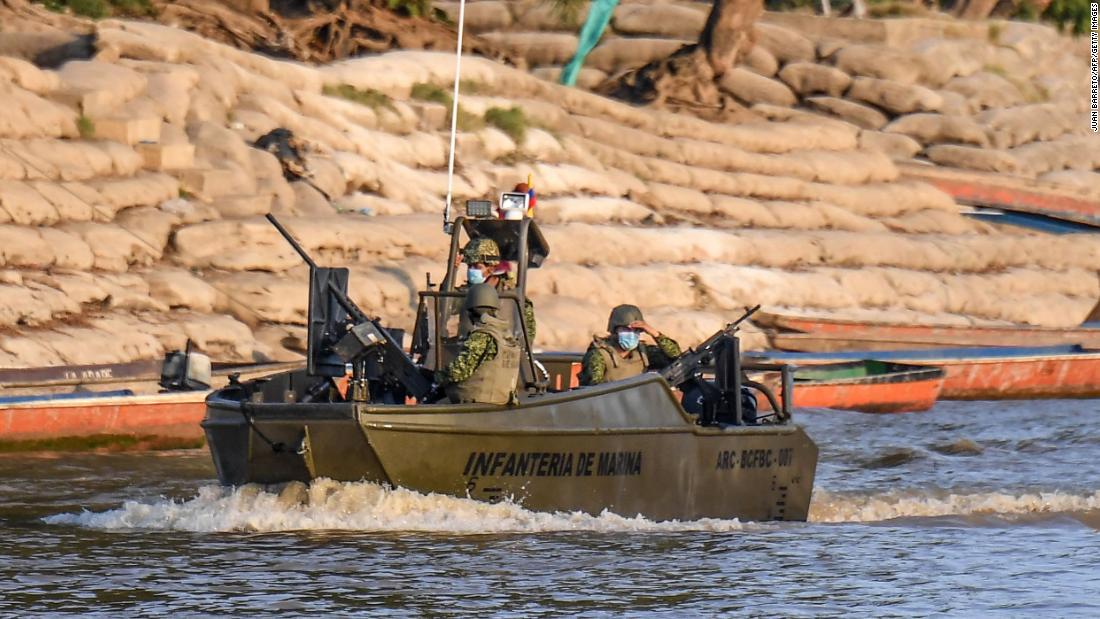
/cloudfront-eu-central-1.images.arcpublishing.com/prisa/2BJPLFOPENCKDMK6PPADXUU37E.jpg)
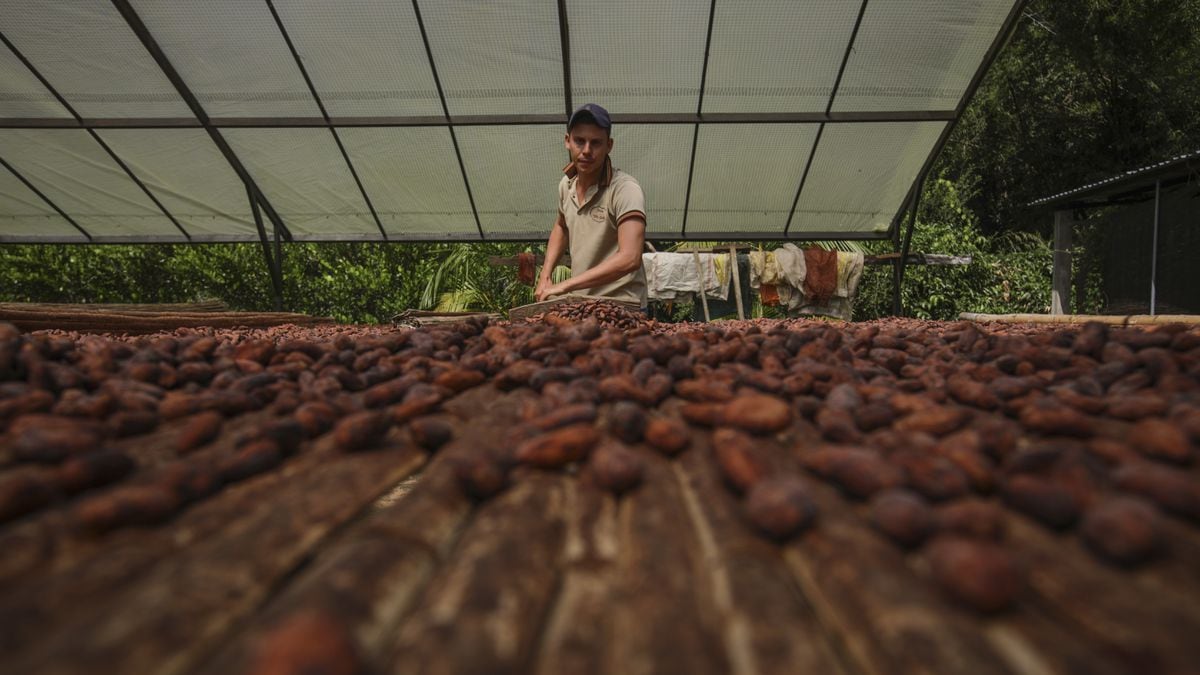
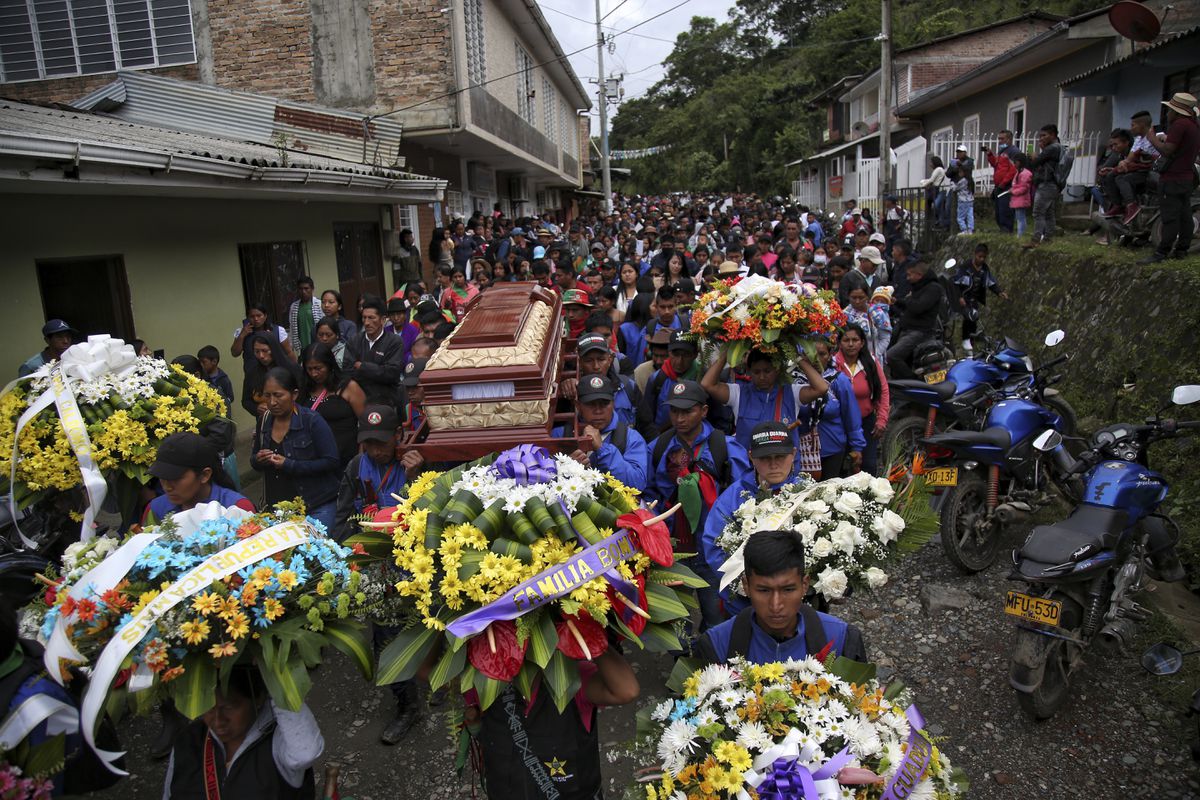
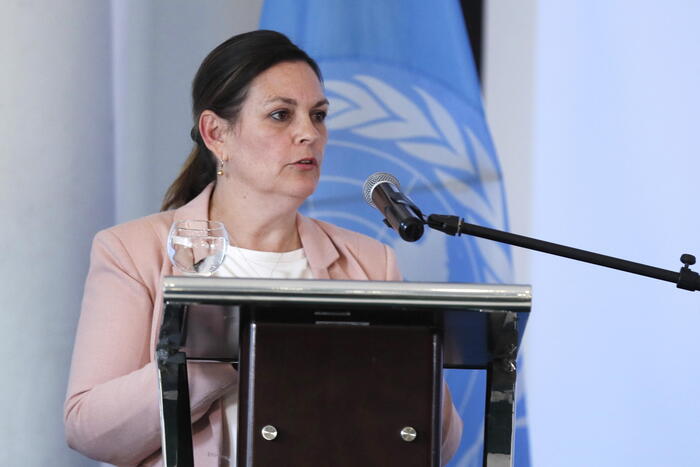
/cloudfront-eu-central-1.images.arcpublishing.com/prisa/L6TCOQ5HGZCWTOW6YNBMMGDKBA.jpg)

